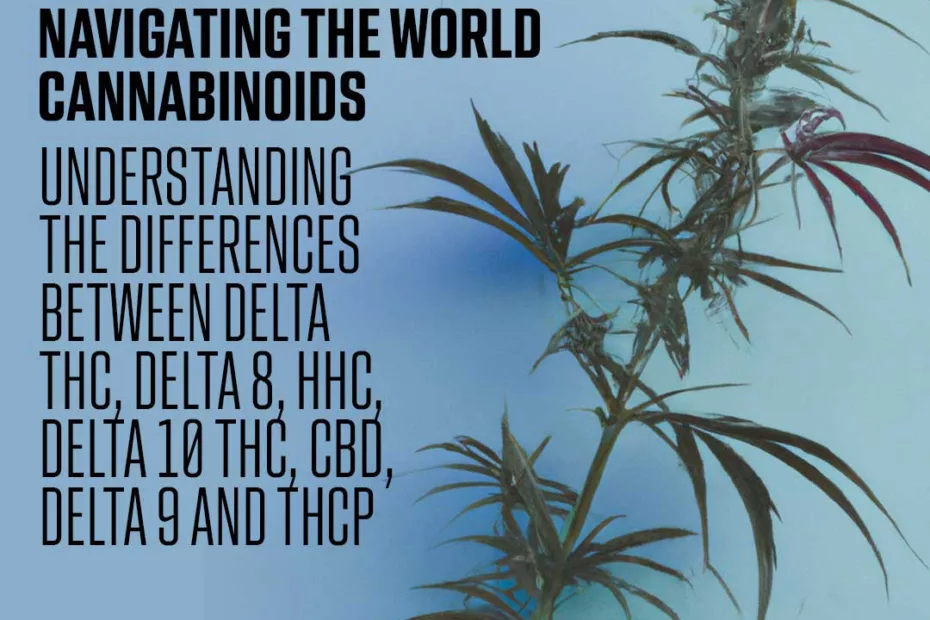Understanding the Differences Between Delta THC, Delta 8, HHC, Delta 10 THC, CBD, Delta 9 and THCP
Cannabis plants contain a variety of chemical compounds known as cannabinoids. These compounds are known for their potential therapeutic benefits and have been the subject of much research in recent years. Among these compounds, there are several that have similar names or effects, which can make it difficult to understand the differences between them. In this article, we will explore the differences between Delta THC, Delta 8, HHC, Delta 10 THC, CBD, Delta 9, and THCP, Navigating the World of Cannabinoids.
Delta-9-tetrahydrocannabinol (Delta 9 THC) is the primary psychoactive compound found in cannabis. It is responsible for the “high” associated with marijuana use. It binds to receptors in the brain and central nervous system and is believed to have therapeutic potential in treating a wide range of conditions, including chronic pain, anxiety, and insomnia.
Delta 8 THC is another form of THC, but it is considered to be less psychoactive than Delta 9 THC. It is believed to have a milder effect on the body and may be useful in treating conditions such as chronic pain and anxiety.
Hexahydrocannabinol (HHC) is a compound found in the cannabis plant that is structurally similar to THC. It is believed to have similar effects to THC, but it is not as well studied and its effects on the human body are not well understood.
Delta 10 THC is a newly discovered compound that is structurally similar to Delta 9 THC. It is believed to be less psychoactive than Delta 9 THC and may have potential therapeutic benefits in treating conditions such as chronic pain, anxiety, and insomnia.
Cannabidiol (CBD) is a non-psychoactive compound found in the cannabis plant. It does not produce the “high” associated with marijuana use. It is believed to have therapeutic potential in treating a wide range of conditions, including chronic pain, anxiety, and even certain types of seizures.
THCP is a newly discovered cannabinoid that is structurally similar to THC. It is believed to be 30 times more potent than THC and may have potential therapeutic benefits in treating conditions such as chronic pain, anxiety, and insomnia.
In conclusion, all these compounds have different effects on the human body and have their own unique potential therapeutic benefits. It is important to note that the legality of these compounds varies from state to state and country to country, and more research is needed to fully understand their effects on the human body. If you are considering trying any of these compounds, it is important to speak with a healthcare professional, check the legality in your location, and purchase from a reputable source.
